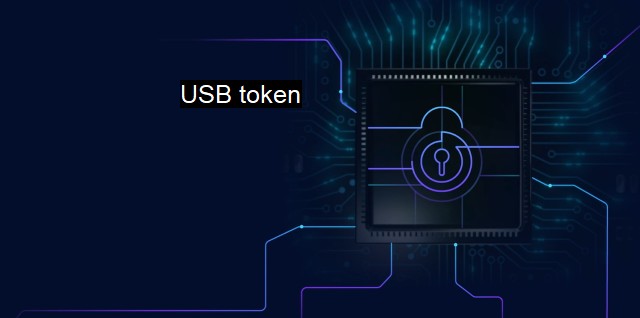What is USB token?
Securely Storing and Accessing Critical Data: Understanding the Benefits and Applications of USB Tokens
A Universal Serial Bus (USB) token is a physical device that provides an additional layer of security in technology environments. In the cybersecurity and antivirus context, a USB token is often used as a key to authenticate a user on a network, an application, or a service. A USB token, also known as a security token, cryptographic token or a hardware token, ensures that only authorized individuals can access certain cyber resources.USB tokens authenticate users based on something they possess. They are typically the size of a small flash drive and are inserted into a computer’s USB port. Once inserted, a user will then be able to access an application or data only with this physical device. This method of authentication is known as two-factor authentication; typically, the user will also have to enter a password. This ensures that even if a password is stolen or compromised, malicious users would also need the physical USB token to gain access to privileged data.
A USB token generates cryptographic credentials and restricts access to sensitive areas of networks to only those individuals holding the physical device. it is comparable to a house key. Like a key that locks and unlocks the front door of your home, the USB token does the same for crucial data on a network. rather this key is digital and even more complex due to its encryption abilities.
A paramount feature of a USB token is its ability to generate and securely store cryptographic keys. In modern cybersecurity, cryptographic keys are essential to maintain data integrity and security. Cryptographic keys are generated using mathematical algorithms that encode messages in a way that only those with the private and unique key can decode and access this communication. The keys are thus stored in the USB safe from hacking attempts or other types of breaches on the main system.
Significantly, USB tokens also facilitate secure logins to websites and systems that deal with sensitive data. online banking or healthcare portals. The token generates single-use passwords or personal identification numbers (PINs) each time an authorized user logs into the system. This functionality makes USB tokens close to impregnable, since the automatically generated PINs are at a high risk of interception by hackers. the one-time feature renders them useless once they have been used or after a set period.
The use of USB tokens is not limited to password generation, but also includes digital signatures. In this context, a digital signature is an encrypted stamp that verifies the authenticity of a digital message or document. The USB token holds the digital signature and ensures that it is unique for each user, validating their identity and preventing unauthorized access.
There are potential risks associated with USB tokens, however. Particularly, it is the risk of losing the actual device because without it, an authorized user cannot access privileged data. For this reason, USB tokens are usually employed in combination with other security measures.
Another challenge is the potential risk of malware and viruses on the USB token. If a malicious program infects the token, it can directly attack the system when the token is inserted into a USB port. Modern USB tokens come with antivirus features within its software, including automatic scanning of the device, hence making this potential risk minimal.
USB tokens significantly augment security measures in cybersecurity. They offer two-factor authentication, generate cryptographic keys, facilitate secured logins, and enable distinct digital signatures. Despite potential vulnerabilities like device loss and cybersecurity threats, these devices have built-in measures that robustly handle these issues. Therefore, when appropriately managed with responsible practices, USB tokens provide a critical layer of security in managing and protecting sensitive data in any network ecosystem.

USB token FAQs
What is a USB token in cybersecurity?
A USB token is a small physical device that is used to securely store digital certificates, encryption keys, and other sensitive information to provide secure access to a computer system or network. It acts as an authentication device to ensure that only authorized users have access to the system.How does a USB token protect against cybersecurity threats?
A USB token adds an extra layer of security to computer systems by requiring physical possession of the device in addition to a username and password. It also utilizes encryption to protect the stored information from being accessed by unauthorized users or cybercriminals.What types of cybersecurity threats can a USB token prevent?
A USB token can prevent a variety of cybersecurity threats, including phishing attacks, identity theft, and data breaches. It can also protect against malware, viruses, and other malicious software by ensuring that only authorized users have access to sensitive information.Can a USB token be used as an antivirus tool?
While a USB token is not an antivirus tool, it can be used in conjunction with antivirus software to provide an additional layer of protection against cyber threats. It can be used to securely store digital certificates for software updates or to verify the authenticity of new software before it is installed on a system.| | A | | | B | | | C | | | D | | | E | | | F | | | G | | | H | | | I | | | J | | | K | | | L | | | M | |
| | N | | | O | | | P | | | Q | | | R | | | S | | | T | | | U | | | V | | | W | | | X | | | Y | | | Z | |
| | 1 | | | 2 | | | 3 | | | 4 | | | 7 | | | 8 | | |||||||